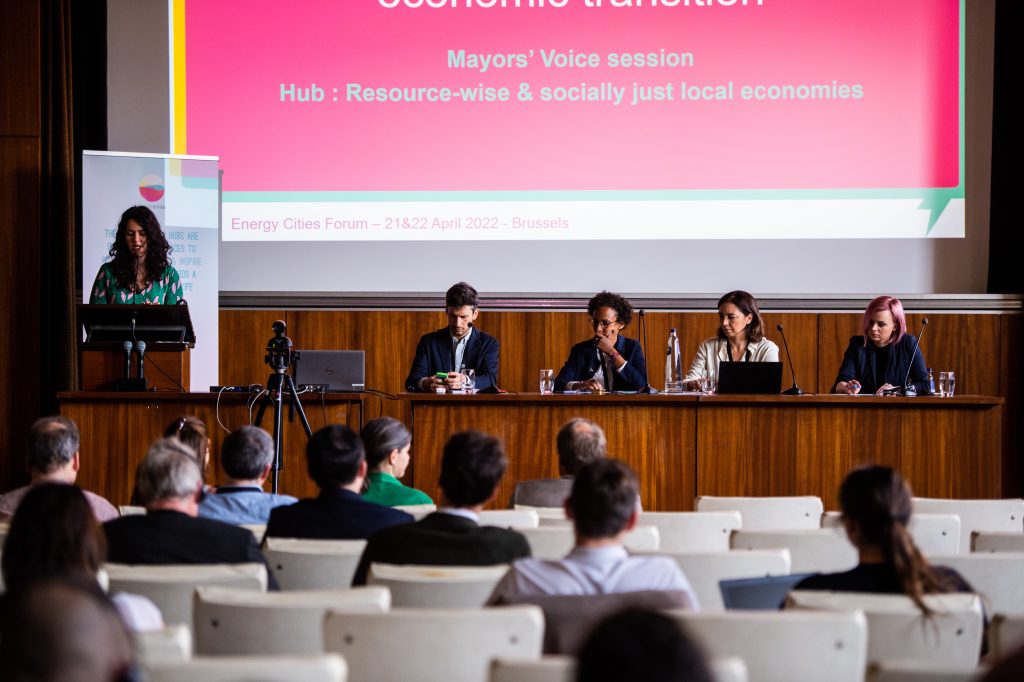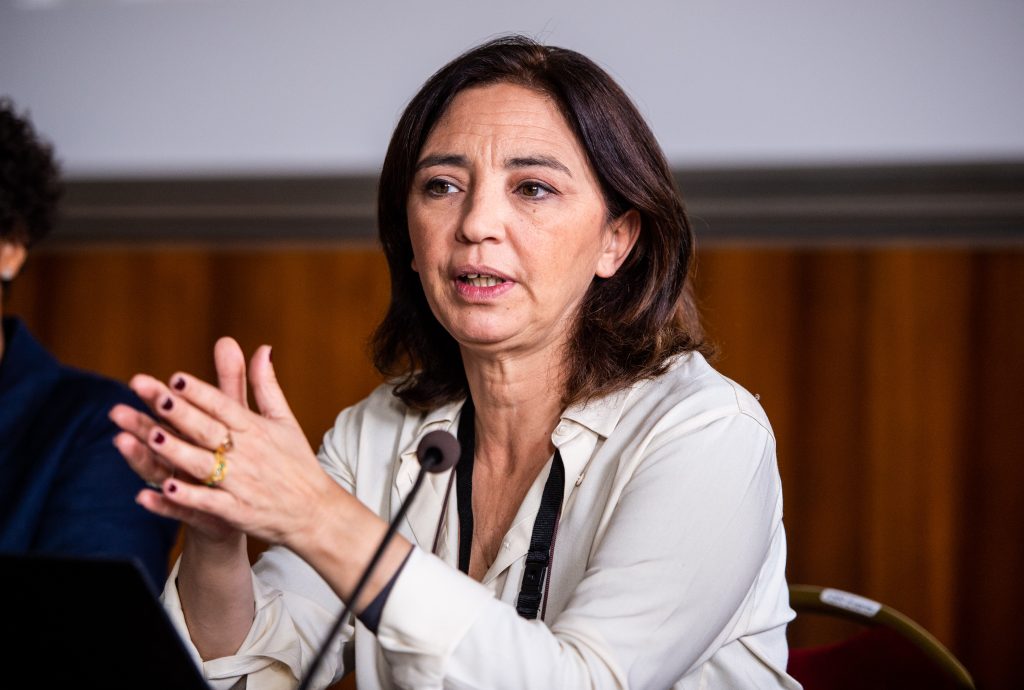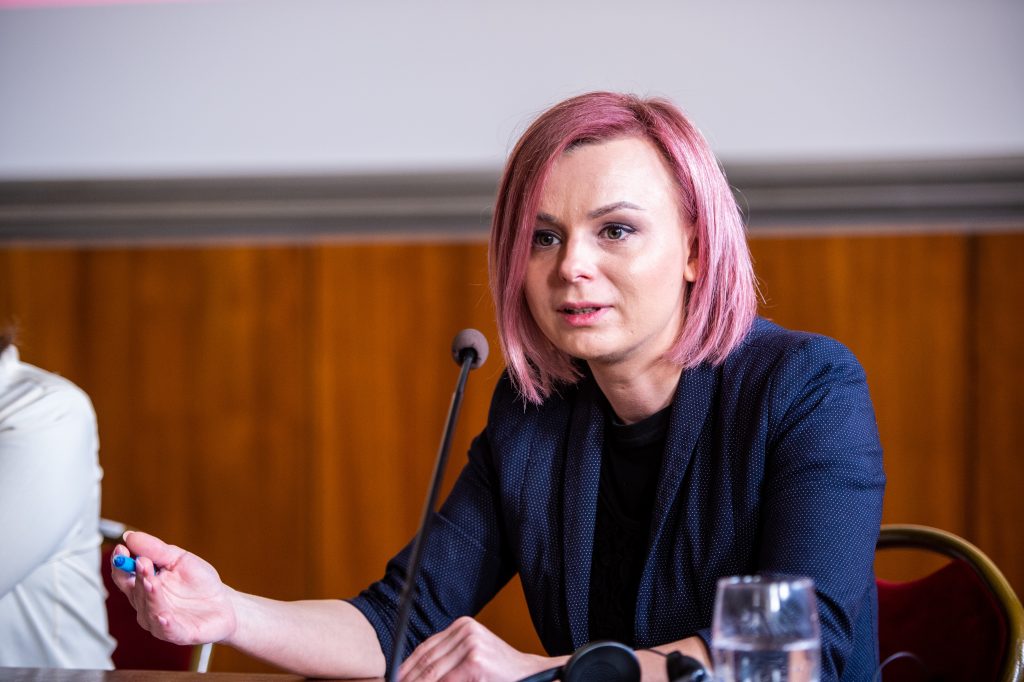Mayors emphasising social cohesion as a sine qua non of the ecological and economic transition
Takeaways from Energy Cities’ Annual Forum in Brussels
There won’t be an ecological transition without social cohesion. This was the most striking message shared by mayors at Energy Cities’ annual forum in Brussels last April.
Let’s face it: not all households are equal when it comes to the ecological transition. And Extinction Rebellion sums this up nicely with this metaphore: “We are all in the same storm. But we’re not all in the same boat.” Any crisis or the implementation of certain policies can be much more impactful for vulnerable citizens or certain social groups such as rural inhabitants. Therefore, social cohesion is a compass to keep in mind when developing policies at all levels of government.

To kick off the discussion at the Forum, Mathieu Saujot (Coordinator for Lifestyles in transition at the research institute IDDRI) pointed out that the conclusions from the last IPCC report imply changing lifestyles and moving towards greater sufficiency. If we want to tie social cohesion in, we need ambitious actions at all levels of society (individual, social, infrastructural, institutional). As the “social contract” is today challenged, we need to design a new one to answer the questions each of us may ask: How can I lay the non-materialistic foundations of my wellbeing while my rhythm of life is dominated by economic insecurity? Why should I make efforts when I don’t trust my neighbour and institutions will do the same? How can new public services be financed in a context of « public poverty » and « private wealth »?

Ines de Medeiros, Mayor of Almada in Portugal, affirmed that “the social contract and economic aspirations should include everybody and leave no one behind”. Indeed, there cities have to play a critical role in defining this new social contract. According to Mathieu Saujot this involves:
- Experimenting with aspects of the new social contract,
- Proposing wider sectoral transformations, and
- Enabling citizens’ participation.
For Mayor Ines de Medeiros, the “Just Transition” lies somewhere between the social responsibility of cities and their climate and energy objectives. Her city is leading a deep transformation by developing a fair and just climate transition plan and by rolling out renewable energy projects for the most vulnerable households. This includes the refurbishment of social housing buildings and, for some, the installation of renewables. Energy communities are, according to her, a great way to make innovation and the transition tangible for Almada’s inhabitants and to encourage citizens’ participation.
In Brussels, the region is also confronted with social inequalities and unevenly distributed social challenges. Since the beginning of her mandate, Barbara Trachte, Secretary of State of the Brussels-Capital Region (responsible for Economic Transition and Scientific Research), has been transforming the economy of the capital region to combat both, these social and climate challenges. The doughnut model theory developed by Katy Raworth is being applied in a co-construction process with Brussels citizens discussing the social threshold that is acceptable for them and how far they are from this target today. Barbara Trachte explained that this model is appropriate as it reflects the situation of “cities stuck between the climatic constraints outside and the social minima inside” to move forward. For that purpose, it is necessary to refocus the economy locally so as not to cross either of these two barriers.
For Flavia Boghiu, Deputy Mayor of Brasov in Romania “policy-makers need to gain the trust of the local community” in order to strengthen the social cohesion while conducting the green transition. How to do that? Flavia Boghiu’s advice is to let control go and give power to the citizens.

In Brasov, this is being done through a participatory budget and events where inhabitants have their say on the energy and governance transition in their city. This gives them a real space for participation while experimenting with new aspects of this renewed social contract. Flavia Boghiu wants to develop and spread “the pride of the city that its inhabitants have in a green commitment“.
Overall, this could be a good leitmotiv in many places all over Europe and for all of us: let’s take part, together, in the development of cities of which we are and will be proud!

